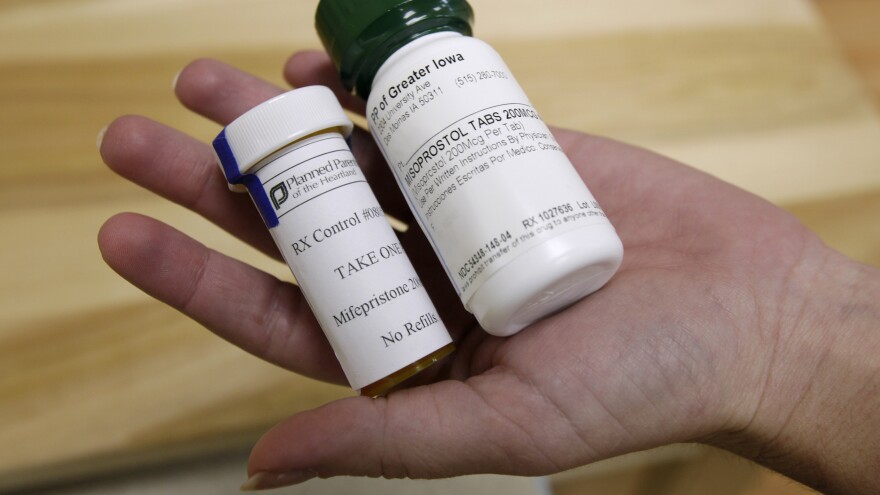News brief:
Two conflicting court rulings on a common abortion medication have put access to the drug in doubt, potentially limiting even further the availability of reproductive health care in parts of the Mountain West.
A federal judge in Texas ruled Friday to hold the FDA's approval of mifepristone even though it's been widely used for more than 20 years. A contradictory ruling on the same day by a federal judge in Washington – as well as a Justice Department appeal of the Texas judge's decision – leaves the legal status of mifepristone in limbo.
Access to general abortion care is becoming increasingly limited across much of the Mountain West. Currently, just one clinic in Wyoming offers abortions, and a total abortion ban passed by the state legislature faces challenges in courts. Restrictions in Montana may also soon become law, and Utah’s governor recently signed a bill that would ban abortion clinics from operating. In Idaho, it could soon become illegal to help a minor get an abortion without parental consent.
Dr. Julie Amaon is the medical director of Just the Pill, which offers telehealth consultations and supplies patients with abortion medication by mail. It also serves patients via mobile clinics. She said her organization is a critical lifeline for those seeking abortions in rural areas, and that it will lean more heavily on the drug misoprostol – typically the medication used after mifepristone in the two-drug abortion regimen – if the Texas judge’s decision is upheld.
“I am less worried about the legal ramifications for me and my company, but more about our patient experience,” Amaon said.
Despite a recently passed chemical abortion ban in Wyoming, Amaon said Just the Pill will continue to prescribe and distribute misoprostol – but not mifepristone – in the Cowboy State using exceptions in state laws. Since December 2021, Just the Pill said it has served more than 556 patients in Wyoming, including 53 people who traveled there from Utah, 51 from South Dakota and 37 from Idaho.
“Based on everything that we've read – and had our lawyers read – for this Wyoming ban that might go into effect in July, we would feel very comfortable sending misoprostol only, and we know that it's a safe and effective method for patients,” Amaon said. “We are going to keep pushing for that future reality that we believe in.”
In the meantime, other states in the West are looking to expand abortion access. Colorado lawmakers want to pass three bills to strengthen the state’s role as a safe haven for abortion rights in the region. Gov. Jared Polis, Sen. John Hickenlooper and others have already spoken out in favor of protecting access to mifepristone, and the state’s attorney general has assured that the medication will remain accessible in Colorado.
Nevada officials are also pushing back on the Texas court ruling, and New Mexico’s governor signed a law that overrides local municipalities in the state from limiting access to abortion procedures and medications.
In a statement, Planned Parenthood Federation of America president and CEO Alex McGill Johnson assured patients that mifepristone remains available and safe “for now,” but said the Texas judge’s decision “will have broad and unprecedented consequences that reach far beyond abortion.”
The group Susan B. Anthony Pro-Life America, meanwhile, said the Texas judge's decision "is a win for the health and safety of women and girls.”
The legal status of mifepristone may end up before the U.S. Supreme Court.
This story was produced by the Mountain West News Bureau, a collaboration between Wyoming Public Media, Nevada Public Radio, Boise State Public Radio in Idaho, KUNR in Nevada, the O'Connor Center for the Rocky Mountain West in Montana, KUNC in Colorado, KUNM in New Mexico, with support from affiliate stations across the region. Funding for the Mountain West News Bureau is provided in part by the Corporation for Public Broadcasting.










